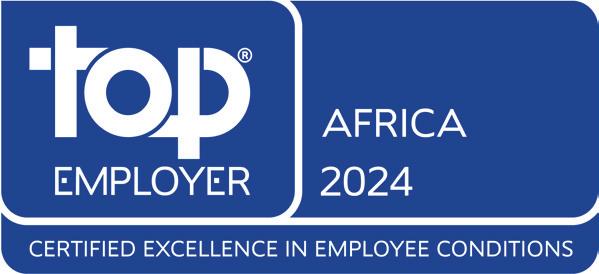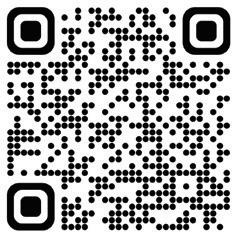









































































Finding the support for your career aspirations

















It’s no secret that the majority of South African students are prevented from furthering their studies because of a lack of funding. In a country with extraordinary socioeconomic challenges, education is the key to uplifting people and securing our place in the global economic landscape.
Bursaries thus have an enormous role to play in alleviating not just the funding challenges of individual students, but our broader societal problems, too. That’s why we produced this magazine – to draw attention to a few of the options and offerings available for learners to fund their tertiary education. On pages 6 and 7, we look at types of bursaries and how to apply for them, along with the various avenues of study in the IT field, one in which South Africa urgently needs to upskill. Another sector where we require skilled graduates is transport, which we cover on page 8, followed by two exciting funding options for those wishing to enter our wine industry on page 9.
Anthony Sharpe Editor
Applying for a bursary is a potentially life-changing deed. This is what you need to know; Support is available to students for further education in a range of IT fi elds, but which should you choose?



Bursaries for those wishing to study in the transport fi eld are helping to drive the wheels of local industry.
Support for world-class qualifi cations is available to those wanting to study the art of making and serving liquor.
Four tips to boost your chances of getting an interview and securing your fi rst job.
PUBLISHED BY
Picasso Headline,
A proud division of Arena Holdings (Pty) Ltd, Hill on Empire, 16 Empire Road (cnr Hillside Road), Parktown, Johannesburg, 2193 PO Box 12500, Mill Street, Cape Town, 8010 www.businessmediamags.co.za
EDITORIAL
Editor: Anthony Sharpe
Content Manager: Raina Julies
rainaj@picasso.co.za
Copy Editor: Brenda Bryden
Contributors: Nkosinathi Mahlangu
Content Co-ordinator: Natasha Maneveldt
Digital Editor: Stacey Visser vissers@businessmediamags.co.za
DESIGN
Head of Design: Jayne Macé-Ferguson
Senior Designer: Mfundo Archie Ndzo
Designer: Bulelwa Sotashe
Cover Images: istock.com/Rawpixel, istock.com/ monkeybusinessimages, istock.com/anon-tae, istock.com/boophuket
SALES
Project Manager: Tarin-Lee Watts wattst@arena.africa | +27 87 379 7119 +27 79 504 7729
PRODUCTION
Production Editor: Shamiela Brenner
Advertising Co-ordinator: Johan Labuschagne
Subscriptions and Distribution: Fatima Dramat fatimad@picasso.co.za
Printer: CTP Printers, Cape Town
MANAGEMENT
Management Accountant: Deidre Musha
Business Manager: Lodewyk van der Walt

General Manager, Magazines: Jocelyne Bayer COPYRIGHT: Picasso


VODACOM is committed to the sustainable economic transformation of South Africa and invests in developing the country’s youth
We are a growing network of youthful, inspired and wired individuals connected globally by Vodafone. We are defined by so much more than our performance goals. In addition to qualifications and degrees, we possess talents and aspirations that contribute to our colourful culture. Being majority-owned by Vodafone, we are connected globally to more than 80 000 like-minded colleagues around the world. Vodacom is a mobile communications company providing voice, messaging, data and converged solutions to around 61 million active customers in Africa.
Joining Vodacom is more than a just job; what we do matters. We don’t just carry minutes, texts and data – we carry people’s lives, and that’s a huge responsibility. If you think for a minute about the people you rely on … the likelihood is they rely on us.
The Spirit of Vodacom
We want to be a trusted partner to connect for a better future. That’s who we aspire to be. To get there, we are restless and passionate about improving the lives of our customers, colleagues and communities. We are always open to learning new things and curious to create solutions that our customers will love. No matter where we work across the Vodacom and Vodafone family we act as one. Together, we create a place where everyone can be themselves and belong.

The way we act
• Earn customer loyalty
• Create the future
• Experiment – learn fast
• Get it done together.
We are committed to the meaningful, sustainable economic transformation of South Africa.
We are proudly multicultural and, with operations worldwide, we are multinational, too. We celebrate and harness our differences to enrich collaboration, innovation, creativity and productivity. We are inclusive, tolerant, honest and fair in our interactions with one another and our customers. After all, our customers are equally diverse.
We employ previously disadvantaged groups at all levels and across all occupational categories in meaningful positions. We also deploy a wide range of development programmes to empower and grow our people across the organisation.
As a company passionate about youth development in South Africa, Vodacom continues to invest in the development of young people through its Early Career Programmes.
The Vodacom Bursary Programme is an academic merit bursary targeting first-, secondand third-year students intending to study or are studying full-time towards science, technology, engineering and mathematics qualifications aligned with our priority skills.
The programme is strategically designed to offer a long-term career path to students by offering more than just a payment of study fees. Applications for the programme open annually between 1 June and 31 August.


To apply for the programme, the following criteria must be met.
• Applicant must be a South African citizen by birth.
• They must be studying or planning to study at a South African tertiary institution.
• The applicant must pass or have passed Grade 12 with an exemption with a 70 per cent or higher average mark.
• They must have obtained a minimum of 65 per cent or higher average mark for the year of study if already at university. Applications are received through our Vodacom Early Career website: https://www.vodacom.com/bursary-programme.php
Application for the programme happens in two steps. The first step is the registration of personal details. Students must first register

WE CELEBRATE AND HARNESS OUR DIFFERENCES TO ENRICH COLLABORATION, INNOVATION, CREATIVITY AND PRODUCTIVITY.


by completing their personal information and contact details. Once their information is submitted, the applicant will receive a confirmation via the email address provided, prompting them to confirm receipt of the email.
The second step of the process is the completion of academic details. Students must log in again to complete their academic details and upload all the required documents. The system will only allow the applicant to submit the application once all the mandatory information has been completed and the documents uploaded.
The programme’s key offerings:
• Full university accommodation.
• Capped amount – private accommodation.
• Full registration and tuition.
• Textbook allowance.
• Meal allowance.
We offer the following additional benefits:
• Laptop.
• Cellphone.
• Orientation workshop for all new students accepted on the programme.
• Workplace exposure through our structured vacation work programme.
• Work-readiness skills training to prepare the final-year bursars to enter the world of work.
• Full access to our Wellness Programme. (ICAS) services.
Applicants requiring technical support with their application can send their queries to the following mailbox: Externalbursaries@Vodacom.co.za



For more information: Externalbursaries@Vodacom.co.za www.vodacom.com

Applying for a bursary is a potentially life-changing deed.
ANTHONY SHARPE outlines some of the things you need to bear in mind
Vast as South Africa’s educational challenges are, it is heartening that scores of bursaries are available to serve the study financing needs of learners. Bursaries take different forms, however, with some covering all of a student’s needs and others offering cover only for tuition or on an ad hoc basis. It’s essential to research prospective bursaries in detail to understand exactly what
they cover. This information should be referenced against a projection of your financial needs and means to ascertain whether you will face any funding shortfalls.
It’s also crucial to understand the requirements for a bursary, including academic performance and potential work for the sponsor organisation, before committing to a particular path.
No two bursaries are quite the same, so each likely will have its own specific requirements. However, some general criteria apply to almost all bursaries available in South Africa.
• Applicants must be South African citizens or permanent residents.
• As bursaries aim to support learners who take their studies seriously, students need to meet a minimum academic performance level averaged across matric or university results or demonstrate high performance in subjects relevant to their desired area of study.
• Bursaries are intended to fund those who can’t fund their own studies, so applicants must have demonstrable financial need, which may have to be validated by
IT-related skills are increasingly needed across every industry, meaning bursaries in this field can have a real impact on learners’ employment prospects –and the economy

There’s no other way to put it: South Africa has a critical shortage of Information Technology (IT) skills. A recent report by SAP Africa , Africa’s Tech Skills Scarcity Revealed, found that the skills shortfall across all IT sectors has not improved; in fact, it has worsened. This is negatively affecting the private and public sectors alike – the Department of Public Service and Administration last year reported that merely 0.4 per cent of South Africa’s bloated civil service works in IT.
Bursaries to support study in IT-related fields thus play a pivotal role in fostering the talent and innovation the country desperately needs to navigate and thrive in the global digital economy. Bursaries are available in the following fields.
At the core of computing innovation lies computer science, the study of computer systems and their applications. With a focus on research and problem-solving, computer scientists drive advancements that
permeate numerous industries, commanding competitive salaries ranging from R250 000 to R315 000 annually.
Computer engineering stands at the intersection of computer science and electrical engineering, encompassing the development of both software and hardware systems. From circuit design to supercomputers, this discipline offers a comprehensive exploration of computing technologies.
In the era of big data, data scientists wielding expertise in mathematics and computer science have become indispensable assets. Their role involves deciphering complex datasets, identifying trends, enhancing business strategies, combatting fraud and much more.
Creativity and technology meet in graphic
showing parents’ income statements or proof of unemployment.
• Some bursaries are only available to candidates within certain age ranges or from particular disadvantaged backgrounds.
Bursaries offer different levels of financial support ranging from R10 000 to more than R100 000.
• Fixed/capped bursary: covers tuition fees only, up to a prescribed amount.
• Top-up bursary: offers financial support based on an individual student’s specific needs.
• Partial bursary: covers tuition fees and required textbooks.
• Full bursary: covers all a student’s needs, including tuition, accommodation, meals, textbooks and transport where necessary. According to Career Wise,
TO UNDERSTAND EXACTLY WHAT THEY
design, where designers craft visual narratives through text, images and symbols, while game graphics designers contribute to immersive gaming experiences, pushing the boundaries of interactive entertainment.
Informatics involves studying computer systems and data and how people interact with these, while information systems is related to the collection, ltering, processing and management of data.
Information and communications technology integrates various technologies to facilitate uni ed communication and integration of hardware and software to store, access and share information.
Information technology fuels the digital age, enabling the transmission and manipulation of data. As a subset of information and communication technology, IT plays an essential role in shaping the technological infrastructure of society.
90 per cent of the bursaries the company administers across all clients fall into this category.
Some bursaries require recipients to work for the sponsor company for a period after fi nishing their studies. The bursary contract is typically structured such that the student must work one year for the company for every year of study sponsored. That means a three-year bursary will require the recipient to work at the company for three years upon graduation. If a student does not fulfi l the required terms of work, they will be liable to repay their bursary funds to the sponsor. While this may seem prescriptive, it helps businesses develop their talent pipelines while ensuring that graduates get much-needed work experience straight out of college.
Some sponsors may require students to work in one of their offi ces or divisions during study holidays, with the goal of helping them get relevant working experience before they graduate.
A good bursary application can be the difference between securing funding and not. Keep these tips in mind when submitting yours.
• First up, make sure you’ve done your research so you understand exactly what the bursary offers and what is required of you.
• Check and double-check the deadlines for the application submissions.
• Pay attention to the application instructions, and make sure you answer all the questions –particularly any essay questions.
• Make sure you meet the relevant requirements.
• Proofread your submission, then ask someone else to do so, too.
• Ensure you upload your files in the correct, compatible format. Source: Bursaries Portal
Multimedia encompasses myriad content formats, including video, audio, images, text and animation, while interactive media pertains to media that responds to actions, letting users engage with digital content through dynamic interfaces.
Software engineering and development encompass the systematic design, testing and implementation of software solutions, including bug xing, deployment and maintenance. With the world we live in increasingly governed by algorithms, professionals with skills in this eld are perpetually in demand.



Despite a slowdown in salary growth in 2023 due to challenging economic conditions, more than 50 per cent of South African software developers received a
Source: Offerzen

Bursaries for those wishing to study in the transport field are helping to drive the wheels of local industry, writes ANTHONY
SHARPEAn efficient, well-run transport sector is the backbone of any economy. It’s no secret that South Africa has seen a notable decline in standards across its transport infrastructure, including rail, road and ports. This has increased the cost of moving goods and threatened the country’s status as the gateway to Southern Africa.
All this means is that transport-related skills are critical to the economy, and job-seekers possessing them should find gainful employment in a sector many hope will be bolstered by several mooted public-private partnerships.
The Transport Education Training Authority (TETA) is the Sector Education and Training Authority responsible for assisting in training and skills development focused on the transport sector. TETA’s operational areas include aerospace, freight handling, maritime, rail, road freight, road passenger, taxi and the forwarding and clearing transport industry subsectors.
The organisation offers a bursary for unemployed learners presently in or having completed Grade 12, registered university or college students requiring funding support, aviation students with valid private or commercial pilot licences and commercial divers who have passed their senior certificate. The bursary covers tuition, accommodation, transport (where applicable), books and meals.
THE SUPPORT GRANTED THROUGH THE TETA BURSARY VARIES DEPENDING ON INDUSTRY TRENDS.
The support granted through the TETA bursaryvaries depending on industry trends, but typically includes (though is not limited to) the following:
• Aeronautical Engineering (B Degree/BSc)
• Accounting (BCom)
• Airline Transport Pilot Licence
• Business Administration (National Diploma/ B-Tech/Advanced Diploma/B Degree)
• Commercial Divers (Class II/III/IV)
• Commercial Pilot Licence
• Data Sciences (BSc)
• Financial Management (National Diploma/
• B-Tech/Advanced Diploma/B Degree)
• Health and Safety Management (National Diploma/B-Tech/Advanced Diploma/B Degree)
• Logistics Management (National Diploma/ B-Tech/Advanced Diploma/B Degree)
• Marine Engineering (B Degree)
• Maritime Law (B Degree)
• Maritime/Nautical Studies (National Diploma/ B-Tech/Advanced Diploma/B Degree)
• Mechanical Engineering (National Diploma/
• B Degree/N4–N6)
• Operations Management (National Diploma/ B-Tech/Advanced Diploma/B Degree/
• Honours Degree)
• Private Pilot Licence
• Risk Management (National Diploma/B-Tech/
• Advanced Diploma/B Degree)
• Road Transport Management (National Diploma/B-Tech/Advanced Diploma/B Degree)
• Supply Chain Management (including
• Warehouse, Storage and Distribution) (National Diploma/B-Tech/Advanced Diploma/B Degree)
• Transport Economics (National Diploma/ B-Tech/Advanced Diploma/B degree)
• Transportation Management (National Diploma/ B-Tech/Advanced Diploma/B degree).
Visit the TETA website for more information.
Through Unisa, the Department of Transport offers bursaries to South Africans 35 years old and below to study at the institution in the following fields:
Undergraduate
• Civil Engineering (Advanced Diploma)
• Civil Engineering (Diploma)
• Logistics (BCom)
• Transportation Economics (BCom).
Postgraduate
• Logistics (Honours)
• Transport Economics (Honours).
The bursaries cover tuition fees and prescribed textbooks, but not failed or repeated modules. Applicants must be Unisa undergraduate or postgraduate (NQF level 6 to 8) students with an average score of at least 50 per cent from their prior academic year. Returning beneficiaries are required to have passed half or more of their previously funded modules.
The supply chain and logistics industries are facing a major shortage of skills, locally and globally. This runs the gamut from manual tasks, such as order picking, to more complex ones, such as creating and managing supply chain systems. Companies are under pressure to create talent pipelines through learnerships and training programmes tailored to their specific needs. Increasing digitalisation also demands that existing workers be reskilled or upskilled to remain relevant.
bursary information


ANTHONY
SHARPE sniffs and swirls the support for studies in the wine and spirits industry
The South African wine industry was hit hard by the COVID-19 pandemic and associated restrictions, but it continues to recover. According to Wines of South Africa, the industry employs more than 269 000 people and exported 368.5 million litres of wine in 2022, making it the eighth-largest producer of wine in the world.
It’s an industry with room for growth and for students eager to learn the ins and outs of wine production, marketing and serving. These are some of the initiatives supporting students in funding their studies.
The South African Sommeliers Association (SASA) offers a beacon of hope and growth for individuals passionate about the sommelier industry through its various bursary programmes, says SASA general manager Erica Taylor. “These bursaries unfold throughout the year, sponsored by an array of generous producers and companies eager to empower and uplift the sommelier community. These unique opportunities provide a platform for aspirants to dive deep into the world of wine, enhancing their knowledge and expertise.”
Taylor says SASA’s bursary programmes cater to a broad spectrum of individuals, from beginners to those seeking advanced certification, and include the Introductory Sommelier Course, SASA Junior Sommelier,
The International Wine Education Centre fully funds 50 places per year for the Pinotage Youth Development Academy in Stellenbosch, says the organisation’s Cathy Marston.
“This is a fantastic year-long work-readiness programme that prepares people in Stellenbosch to work in the wine industry.”
ASI Certification Level 2 and the prestigious ASI Diploma. “Each programme is tailored to instil a profound understanding of wine, from its rich history to the complexities of taste, serving and storage, ensuring participants gain a holistic and comprehensive education.”
Interested parties should sign up and become members of SASA, which, in turn, allows access to the association’s mailing list. Through this platform, members are kept abreast of all bursary opportunities as they arise along with other valuable information related to the sommelier industry.
“SASA’S BURSARY PROGRAMMES CATER TO A BROAD SPECTRUM OF INDIVIDUALS, FROM BEGINNERS TO THOSE SEEKING ADVANCED CERTIFICATION.” – ERICA TAYLOR
“By fostering education and professional development, SASA’s bursary programmes not only enhance individual careers, but also contribute significantly to the enrichment and advancement of the sommelier profession as a whole,” says Taylor. “This initiative represents SASA’s commitment to excellence, inclusivity and the sustainable growth of the wine industry in South Africa and beyond.
Check out sommeliers.org.za for more information and contact details.
The International Wine Education Centre (IWEC) was Africa’s first approved programme provider for the Wine & Spirit Education Trust (WSET), one of the world’s leading drinks education organisations.
Cathy Marston, who leads the WSET course in South Africa, says that IWEC has received money from the Gérard Basset Foundation to fund 12 Level 3 bursaries, with WSET itself hopefully chipping into cover a further three. “That’s for a course that will start in August. The foundation has also given us R200 000 to fund two people on our Level 4 course – the flagship course, one level down from Master of Wine.”
Marston says a lot of bursary funding also comes from the International Wine Challenge (IWC) – the world’s largest wine competition, held annually in London. “The additional wine sent to the competition is auctioned to create a slush fund for education. People can apply for Level 2, 3 and 4 bursaries through WSET, and the IWC is incredibly generous in assisting with that.”
Marston also recommends checking out Women of the Vine & Spirits, an American organisation dedicated to supporting women in the drinks industry. “It provides bursaries for all levels of WSET courses and particularly tries to support women of colour.”
Go to thewinecentre.co.za for more information and contact details.
“A LOT OF BURSARY FUNDING ALSO COMES FROM THE INTERNATIONAL WINE CHALLENGE –THE WORLD’S LARGEST WINE COMPETITION, HELD ANNUALLY IN LONDON.” – CATHY MARSTON



NKOSINATHI MAHLANGU, youth employment portfolio head at Momentum Metropolitan, shares four steps that will give you the employment edge and get you job-ready
Finally, you’ve graduated from school or college, and you’re officially ready to enter the working world. Perhaps you’re struggling to land an interview – never mind a job. Where to from here?
While the first scenario is a rite of passage for most young people on the precipice of launching their careers, the second scenario is the byproduct of a landscape where youth unemployment is staggering and we’re facing a contracting local economy with far too few jobs and too many young people needing employment.
Young people are hungry to work and excited to start their careers, but in a highly competitive environment, they will need to have an edge to get them noticed by prospective employers.
To address this, Momentum Metropolitan recently hosted its first Dream to Thrive workshop, aimed at helping youth find employment. Here are four key takeouts from topics covered at the workshop to help young people land their dream jobs.
1. Bring your CV A-game.
Your CV is the first thing a prospective employer sees. You want to make sure the odds are in your favour. To do this, you need a top-notch, updated CV that is thorough and showcases your skills in 30–60 seconds. In that time, you should aim to wow the employer.
Every CV should contain a few basics: name, contact details, ID number, area you live in and whether you have a driver’s licence. It should include your education details, employment history and any achievements.
Finally, it should include a personal summary or career objective summary listing your skills, strengths and career goals. Keep it brief, punchy and sell yourself – but don’t come across as arrogant.
DO SOME
THE COMPANY AND LEARN ABOUT THEIR BUSINESS NEEDS AND COMPANY CULTURE AND WHAT THEY EXPECT FROM THE PERSON FILLING THE POSITION YOU’RE AFTER.
Tips for success.
• Keep your CV short – maximum two A4 pages.
• Be consistent with your format and ensure there are no typos or grammatical errors – this can deter employers – ask a friend to proofread if you’re not feeling confident, or try a free online tool such as Grammarly.
• Tailor your CV for each application to make it as relevant as possible to the role for which you’re applying.
2. Keep your cover letter sharp. Yes, sending the same cover letter to many companies saves you time in the short term but decreases your chances of getting a job quicker than you can say “spray and pray”. Customising your cover letter for each application will help you stand out.
Do some research on the company and learn about their business needs and company culture and what they expect from the person filling the position you’re after. In your cover letter, lay out the value you can bring to their company, bearing the above in mind. Focus less on what you will get from the role and more on what you will bring to the role.
Make sure your passion shines through, address the recipient by name rather than Sir/ Madam, and you will already be a step ahead.
3. Get ready to be your best self. Congratulations! You’ve landed an interview thanks to your compelling CV and cover letter, but your job isn’t done (but if all goes according to plan, it will soon begin).
There are several ways you can prepare for an interview to present yourself in the best possible light.
• Be presentable. The accepted attire differs across industries, for example, the dress code in an advertising agency or tech company might be more relaxed than in a legal firm or

large corporate. That said, always err on the side of caution and aim for smart or smart-casual, ensuring your hair and nails are neat, your shoes are clean and your clothes ironed.
• Be prepared. Do your research on the company beforehand, know your CV back to front and practise your answers to the questions likely to be asked, finding ways to marry your experience and knowledge with the job requirements.
• Be courteous. Arrive 10–15 minutes early, put your cellphone on silent, and know the name of the person interviewing you. When you meet them, shake their hand firmly and greet them warmly and confidently while looking them in the eye.
4. Interview time!
Finally, it’s the day of the interview, and you’re worried your sweaty palms and quivering voice will get the better of you. But, don’t worry, nerves are a good thing, and the adrenalin can even assist in keeping you sharp when it is crunch time.
Plus, employers expect that candidates will be a little nervous. That said, there are a few tactics you can employ to manage your anxiety and win the interviewer over.
• Slow down and breathe – take your time answering complex questions.
• Stay calm – listen carefully and be careful not to spiral into a monologue where you’re talking at the interviewer rather than with them – this phenomenon is a byproduct of nerves, but by being aware of it, you are less likely to fall victim to it.
• Answer questions confidently, but remember it’s a fine line between confidence and overconfidence. Be friendly, courteous, concise and, above all, honest.
• Ask questions – it shows interest in the company and helps to keep things conversational.
• Send a thank-you email following the interview with any job references or materials you promised to share.
Remember that even if you don’t land the job, each interview will help refine your interview skills. Should you not be appointed, always remain professional and consider (politely) asking for feedback – if you take this information constructively, you can use it to better your presentation for future interviews. YOU

